Showing 1-8 of 8 results

Common Ground Newsletter & Podcast
Common Ground, our Newsletter & Podcast is sent via email monthly. The newsletter includes grant announcements, listings of funded projects, success stories, SARE resources and more. Sustainable agriculture stories from the Southern USA, about farmers, ranchers, NGOs, community groups and those who support them as well as innovative practices from around the 13 southeastern United […]
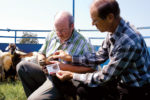
FAMACHA
FAMACHA is a diagnostic tool to help farmers identify parasite infection in small ruminants, allowing them to cut the cost of deworming agents by targeting treatments only to infected animals. Training is required before purchase.
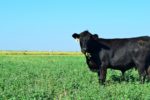
The Performance of Cover Crops in Minimally Tilled Forage-based Grazing Systems
In a Southern SARE-funded Graduate Student Grant (GS15-152), “Evaluation of Winter Annual Cover Crops Under Multiple Residue Management: Impacts on land management, soil water depletion, and cash crop productivity,” Texas Tech University researchers investigated five cover crops species as potential complements to a warm-season beef-stocker grazing system. The impact of the project was two-fold: Stabilize the soil surface from excessive wind erosion and desiccation; and strengthen rural communities by ensuring the persistence of profitable agriculture in the region.
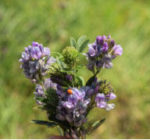
Integrating Legumes with Grass to Improve Forage-Livestock Systems
In a Southern SARE-funded Research and Education Grant (LS14-261), "Long-term Agroecosystems Research and Adoption in the Texas Southern High Plains -- Phase III," Texas Tech University researchers conducted a steer grazing trial comparing a grass only system to a grass-legume system for animal productivity and water use efficiency.
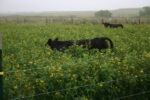
Grazing Cover Crops in Cropland
For some producers with extensive experience using cover crops, grazing can be a ‘next step’ in obtaining additional economic value while achieving environmental stewardship.
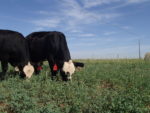
Introducing Annuals in Grazed Pastures
Annual cover crops provide ecosystem benefits to perennial-based pasture systems by introducing quality forage at opportune times of the year, creating a more diverse farm habitat, and providing opportunities to renovate overused or underutilized areas of the farm.
Sustainable High Plains Research Bulletins
A series of bulletins showcasing the various facets of Texas Tech University research on integrated crop and livestock production systems in the Texas High Plains. The bulletins cover sustainable agroecosystems, crops and soils, and water conservation.
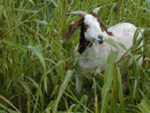
Sustainable Year-Round Forage Production and Grazing/Browsing Management in the Southern Region
An educational training video to increase the productivity, quality, and production of forages, as well as to improve management of existing pastures for sustainable livestock production.